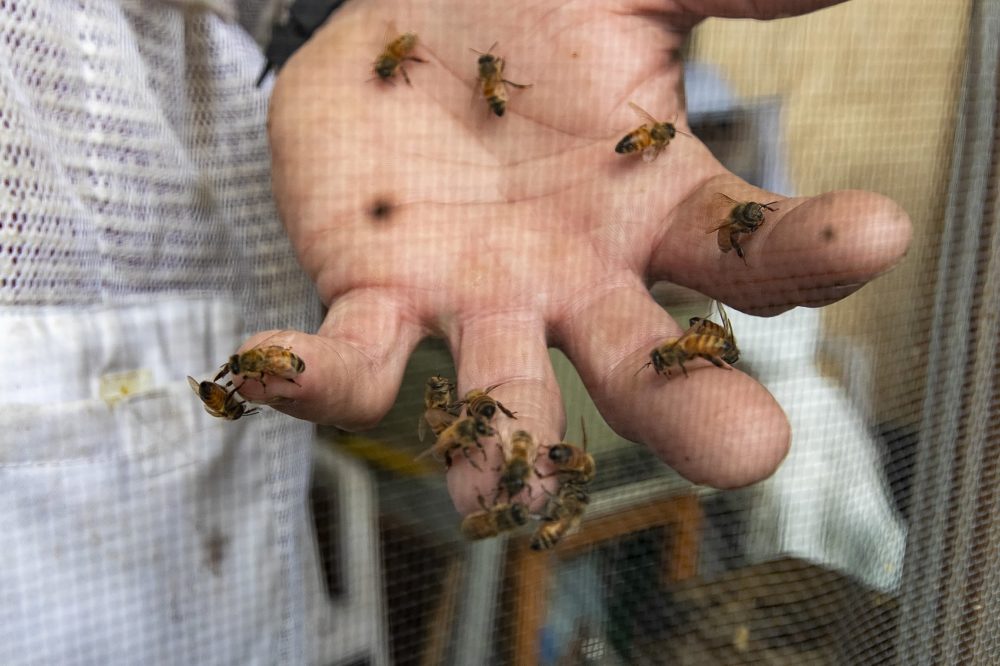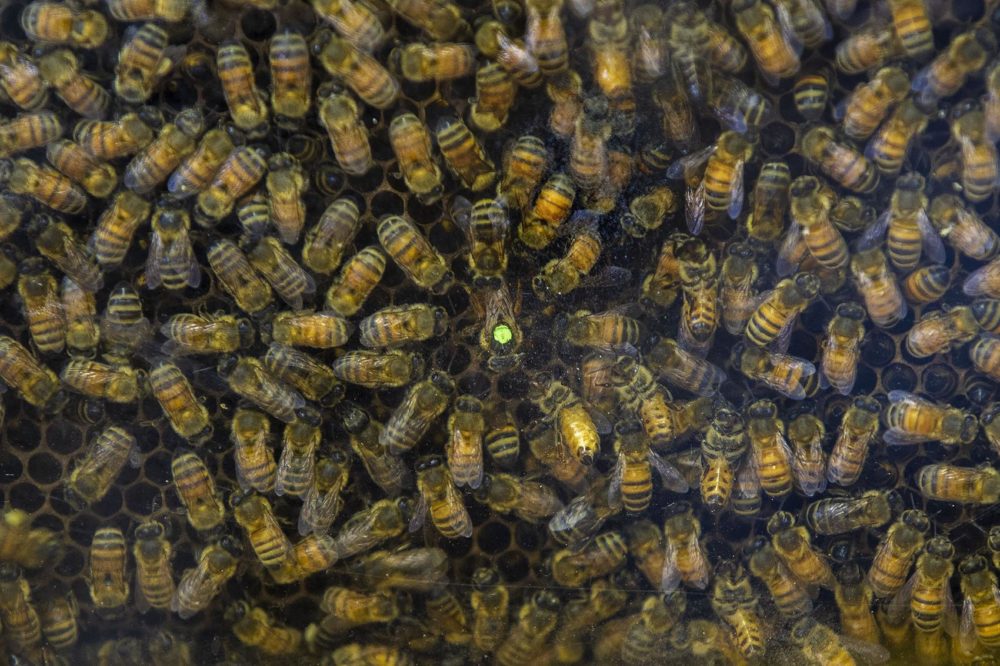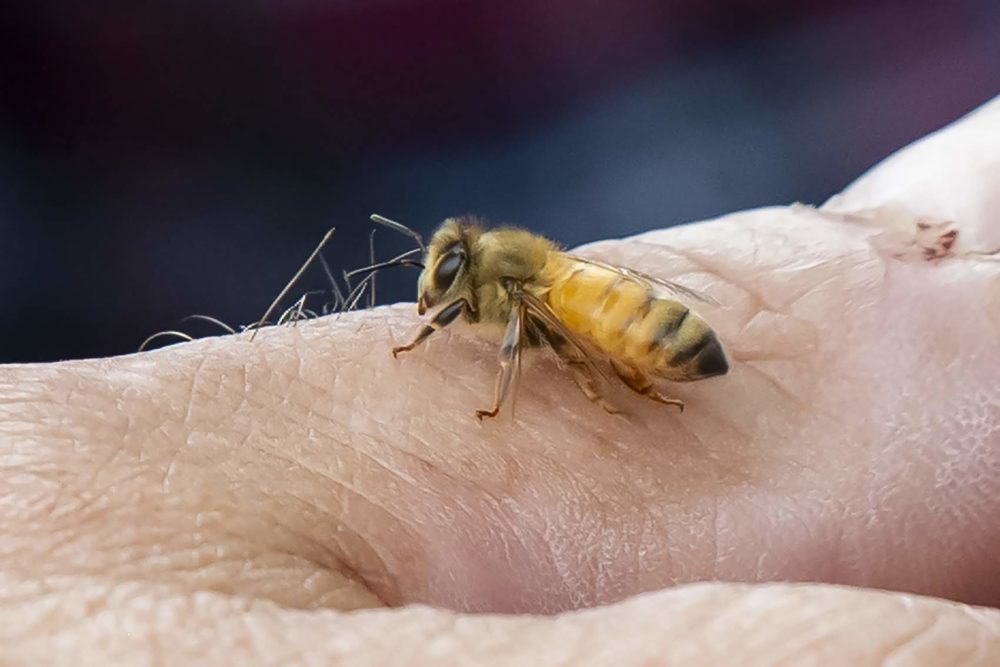Advertisement
As Mass. Sprays For EEE, Beekeepers Worry About Fragile Bees
Resume
This summer is turning out to be a particularly bad one for the mosquito-borne virus Eastern Equine Encephalitis, or EEE, and that has beekeepers in southwestern Massachusetts worried. Their concerns are not about the bees contracting the viral disease, but rather that the state's effort to limit the public health risk will end up harming these already-threatened insects.
With four reported EEE infections so far this year — and one confirmed death — the Massachusetts Department of Public Health has been spraying aerial pesticides in areas where mosquitoes have tested positive for the virus this month. Currently, the department says more than 30 communities in the state are at high or critical risk for EEE.
"They say the mosquito spraying is just for the mosquitoes, but it’s for killing insects. And bees happen to be an insect," says Marshfield beekeeper Ken Pearl. "It’s hard enough with everything else that we have to contend with without worrying about mosquito spraying."
Many common chemicals — fertilizers, herbicides, insecticides — harm bees. Sometimes, they disorient the insects, causing them to lose their way; other times, they cause a more violent and sudden death. Bees are also susceptible to disease, parasites and pests like the varroa mite.
"We can treat those things, but we can't treat for poison coming out of the sky," Pearl says.
Pembroke beekeeper Cliff Youse also thinks the state's spraying threatens his hives.
"There are two kinds of spraying: There’s aerial spraying and there’s spraying from the trucks that drive up and down the streets. As beekeepers, we can opt out of the truck spraying," he says. But not so with the aerial spraying.
"Basically, we’re in a situation where the only thing we can really do about it is put wet sheets over the hives, if we have enough advance notice," he says.

Given that pesticides are a major cause of bee colony collapse throughout the country, it's reasonable for people to worry about the aerial spraying.
But state officials say that if people have seen dead bees in Massachusetts this summer, it's probably not from the EEE control effort.
"We monitor hives both before and after sprays. We had two cases where there was some suspicion of pesticide-caused mortality. We came out, we took a look. We found some reason to believe that it was likely due to predatory mites and viruses, and to confirm that, samples were sent to our analysis labs," says Massachusetts Department of Agricultural Resources commissioner John Lebeaux. "We’ve had no other cases of suspected issues."
When conducting aerial spray operations, the state uses a pesticide called Anvil 10+10 that's specifically formulated to target flying mosquitoes and is short-lived — it has a half-life of one day and degrades even faster in sunlight.
Lebeaux doesn't rule out the possibility that this pesticide could harm bees or other insects, but he says there's no evidence that it has. The state used Anvil 10+10 in previous aerial spray campaigns and didn't observe any negative impacts.
"We’ve done a great deal of direct communication with beekeepers and beekeeper associations both on a statewide and countrywide basis," he says.
Still, some Massachusetts beekeepers say they remain skeptical.
"This is the first year they’ve sprayed since I’ve kept bees. They’ve hit me twice," says Jim Rawlings, of West Wareham. He says he's noticed some dead bees the day after an aerial spray, but not in large enough numbers to warrant a call to the state.
"It hasn’t been that big of an issue — yet," he says.

Correction: A previous version of this article incorrectly spelled Jim Rawlings' surname. The post has been updated. We regret the error.
This segment aired on August 28, 2019.
